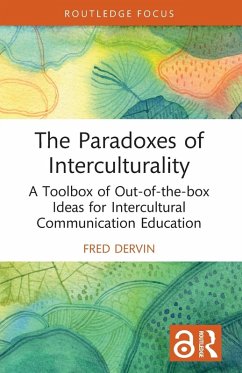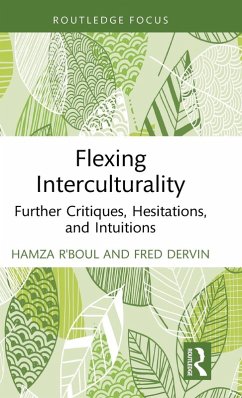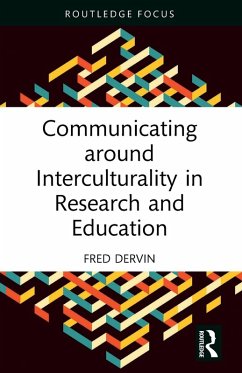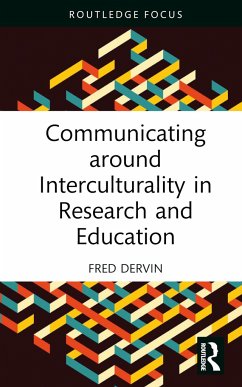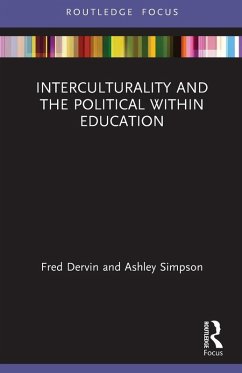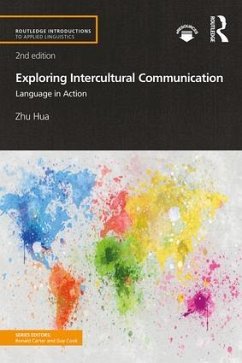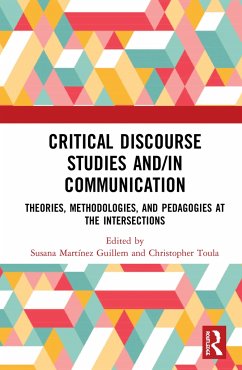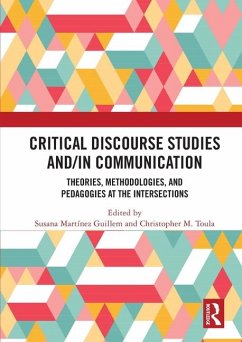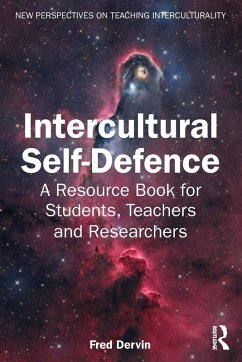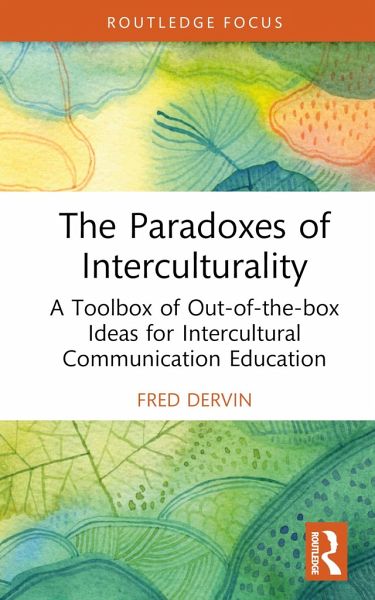
The Paradoxes of Interculturality
A Toolbox of Out-of-the-box Ideas for Intercultural Communication Education
Versandkostenfrei!
Versandfertig in 6-10 Tagen
51,99 €
inkl. MwSt.

PAYBACK Punkte
26 °P sammeln!
Offering a unique reading experience, this book examines the epistemologies of interculturality and explores potential routes to review and revisit the notion anew.Grounded in different sociocultural, economic and political perspectives around the world, interculturality in education and research bears a paradoxical attribute of 'contradictions' and 'inconsistencies', making it a polysemous and flexible notion that has no definitive diagnosis and requires constant unthinking and rethinking. The author provides a toolbox of 'out-of-box ideas' in the form of fragmental yet standalone writings an...
Offering a unique reading experience, this book examines the epistemologies of interculturality and explores potential routes to review and revisit the notion anew.
Grounded in different sociocultural, economic and political perspectives around the world, interculturality in education and research bears a paradoxical attribute of 'contradictions' and 'inconsistencies', making it a polysemous and flexible notion that has no definitive diagnosis and requires constant unthinking and rethinking. The author provides a toolbox of 'out-of-box ideas' in the form of fragmental yet standalone writings and follow-up questions concerning stereotypes about the very notion of interculturality and conceptual and methodological flaws in the way it is used. Readers are encouraged to critically reflect about interculturality as it stands today in global research and education. In identifying the paradoxes of interculturality and proposing alternative directions, the book stimulates a diversity of thoughts about the notion that goes beyond the 'West'.
The book will be an essential reading for scholars, students and educators interested in education philosophy, applied linguistics and the broad field of intercultural communication education.
The Open Access version of this book, available at http://www.taylorfrancis.com, has been made available under a Creative Commons [Attribution-Non Commercial-No Derivatives (CC-BY-NC-ND)] 4.0 license.
Funded by University of Helsinki
Grounded in different sociocultural, economic and political perspectives around the world, interculturality in education and research bears a paradoxical attribute of 'contradictions' and 'inconsistencies', making it a polysemous and flexible notion that has no definitive diagnosis and requires constant unthinking and rethinking. The author provides a toolbox of 'out-of-box ideas' in the form of fragmental yet standalone writings and follow-up questions concerning stereotypes about the very notion of interculturality and conceptual and methodological flaws in the way it is used. Readers are encouraged to critically reflect about interculturality as it stands today in global research and education. In identifying the paradoxes of interculturality and proposing alternative directions, the book stimulates a diversity of thoughts about the notion that goes beyond the 'West'.
The book will be an essential reading for scholars, students and educators interested in education philosophy, applied linguistics and the broad field of intercultural communication education.
The Open Access version of this book, available at http://www.taylorfrancis.com, has been made available under a Creative Commons [Attribution-Non Commercial-No Derivatives (CC-BY-NC-ND)] 4.0 license.
Funded by University of Helsinki





